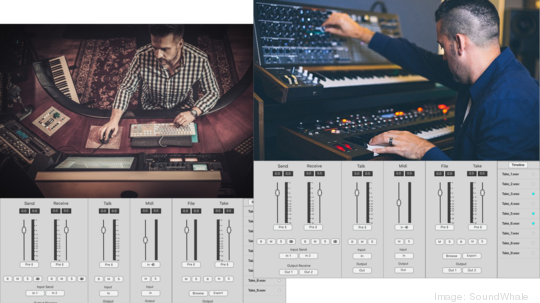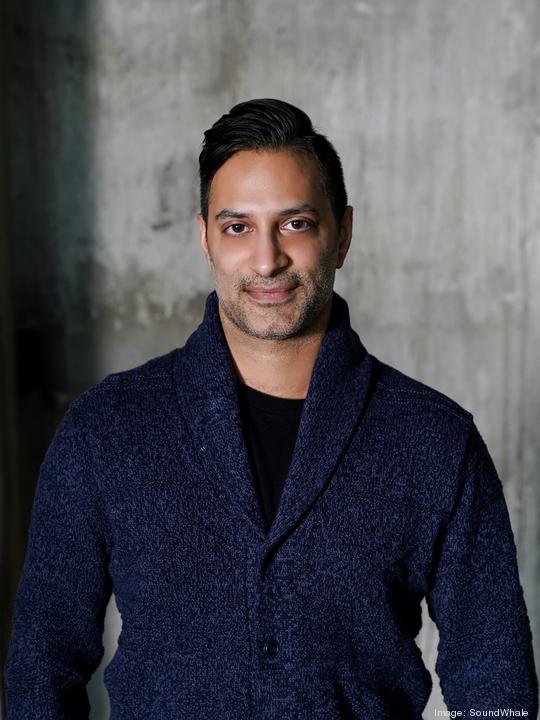
The Covid-19 pandemic has brought the entertainment industry to a near standstill. Whenever possible, artists collaborate from afar, but Zoom meetings aren't always helpful when working on things like albums, movies and TV shows.
As a result, local startup SoundWhale has seen a big increase in its business over the last six months. The Minneapolis-based company offers a platform for audio collaboration and remote post-production workflows. It's not a place where people meet online to jam – it's a production environment that allows users to listen and record professional sound in real time.
CEO and Founder Ameen Abdulla has been producing content for film and TV for around two decades and says there is a lack of affordable options for artists working on projects remotely.
"SoundWhale was born out of frustration," Abdulla told Minne Inno. "People don't want to wait forever just to get a glitchy file and they don't want to have a hiccup while they're working with you."

Abdulla wanted to find a way to make it feel like both users were in the same room. Remote production software has been available for a while, but in Abdulla's experience, it is expensive and impractical.
"No one wants to drop $150,000 on a machine that does something so simple," he said. "SoundWhale is pretty easy to use and pretty cheap. It makes it easier for people to work on the fly."
SoundWhale offers several plans for users. Its basic plan is free and a monthly subscription is $30.
"It opens doors to people doing things on TikTok and YouTube who want to create high-quality content but struggle with audio quality," Abdulla said. "If they had SoundWhale they could work with someone who has a studio."
Audio is typically the last stage in the production process. When the pandemic hit the U.S., artists and studios working on post-production needed a way to continue collaborating remotely.
"Our user base has heavily shifted in the last few months," Abdulla said. "There are a lot of studios out there trying to do sessions remotely with voice talent."
He added that SoundWhale is also used by large studios, but declined to say which ones.
"Big studios have been working with it pretty deeply," Abdulla said. "People are desperate for a solution."
Abdulla began working on SoundWhale in 2016. Its software was officially released in November 2019.
SoundWhale is a local company with a global footprint. Before the pandemic, Abdulla regularly traveled to New York, Los Angeles and Kiev, Ukraine. Its software is now available in many countries and has been especially popular in Japan.
"People thing we're this huge company, but basically there's only six of us," Abdulla said.
Because of the company's early success, Abdulla does not have any immediate plans to seek out venture capital funding. Instead, he hopes to land a strategic partnership that will help SoundWhale expand its technology and make it available to more users.
"We feel we've got things under control," Abdulla said. "We're confident that we can penetrate the market as is."



